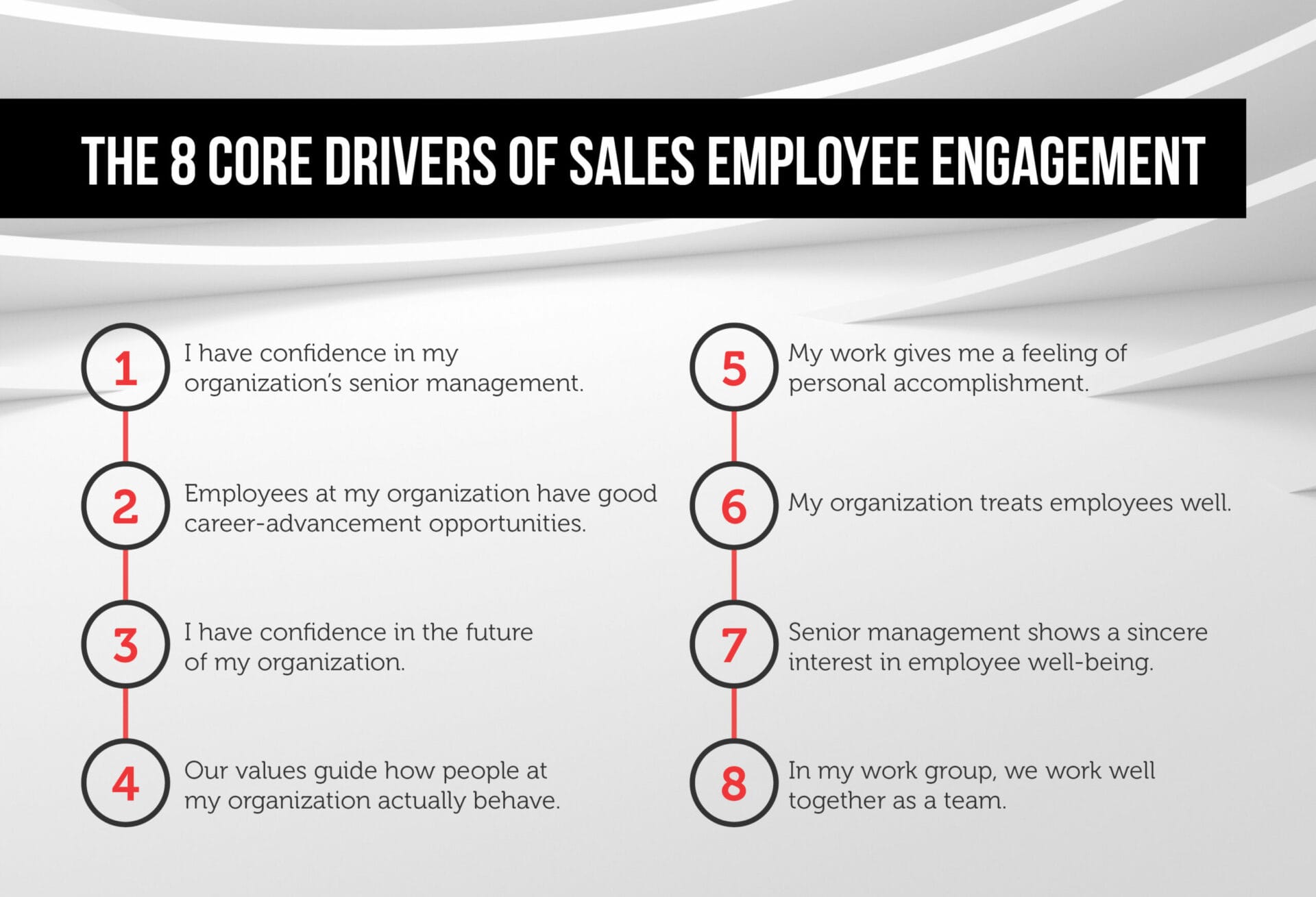Halfway through our first cup of coffee, we cut to the chase. She’d asked to meet for a specific reason.
“I’m going to change careers and I want your advice. I want to get out of sales completely.”
She caught me off guard. I understood changing companies. After all, nearly half of salespeople are actively looking for a new job right now. That wasn’t big news. But, wanting to get out of sales completely? I couldn’t get my mind around it. This was this coming from one of the best sales professionals I knew.
She went on to explain the current abysmal state of affairs inside her organization. They were losing market share, facing new, disruptive competition and struggling to keep up with a massive shift in customer expectations. The organization was aggressively removing “cost” from the business — which meant not investing in the future and not responding to reality fast enough. She was starting to succumb to a very challenging, uncertain situation.
The unfortunate outcome was her shaken self-confidence. She was going to miss her performance target for the first time ever. Her conclusion? Maybe she just wasn’t cut out for the future of professional selling.
She was wrong. I let her know it.
“This has nothing to do with you. The organization and leadership are failing you. You aren’t failing. They aren’t putting you in a position to compete and win. You don’t have the leadership, strategy or resources you need. That isn’t on you. This has nothing to do with your ability to sell and everything to do with what and where you are selling.”
Selling is a game of confidence. Producers need to believe they can win.

She eventually opted to change companies but stay in the game. Good call. She is crushing it today. Her story is a common one I see playing out inside many sales organizations — more than 80 percent of salespeople would consider leaving sales altogether if they could make the same amount of money in another role.
To help sales leaders respond, my frequent collaborator Don MacPherson and I researched the topic. Here’s what we learned about how to overcome that crisis of confidence:
Go First
Before you ask your team to commit to performance goals, tell them what they can expect from you. Get specific! Tell them what you’ll do to help them meet their goals. Set high expectations for yourself and deliver on your promises consistently.
Promote Continuous Learning
Build a culture of continuing education. Assign teaching topics that challenge reps to stretch and grow. Share case studies from outside the organization. Champion mentoring and encourage self-development.
Leverage the Power of Storytelling
Include customer case studies in every sales meeting. Focus on customer outcomes and reinforce your compelling value proposition and opportunity to create customer success. Find ways to share customer testimonials (through customer panels, Q&As or recorded customer interviews). Elevate belief and commitment by encouraging everyone to own these success stories.
Check In Regularly
Provide feedback and have future-directed conversations every 30 days. Annual performance reviews are dead. Today’s top producer requires a more consistent feedback loop and expects the opportunity to contribute thinking and feedback to help the business improve. Leaders are listeners. Master the art of effective, two-way communication.
Drive Performance
Maintain an obsessive focus on performance targets and customer outcomes. Constantly recruit and develop the best sales talent. Remove barriers and provide the resources and coaching that reps need to compete and win. Create an environment of clearly defined expectations and accountability. Continue to adapt and make forward progress as market conditions and customers evolve.



![[RE] Featured Image - Sales Growth Strategies A group of employees walking up the stairs while chatting in a concrete office building](https://ryanestis.com/wp-content/uploads/bb-plugin/cache/RE-Featured-Image-Sales-Growth-Strategies-1024x538-panorama-2f257ae51c972272de1c7aed28b01877-.png)
![[RYAN] Featured Image - Sales Manager Skills A person in a business suit shaking hands with a colleague](https://ryanestis.com/wp-content/uploads/bb-plugin/cache/RYAN-Featured-Image-Sales-Manager-Skills-1024x538-panorama-a9e7a83da9a5ca4e1d38b36e87492f06-.png)
![[RYAN] Featured Image - Consultative Sales Approach [RYAN] Featured Image - Consultative Sales Approach](https://ryanestis.com/wp-content/uploads/bb-plugin/cache/RYAN-Featured-Image-Consultative-Sales-Approach-1024x538-panorama-42c09bf12887088a921116094d899f06-.png)
![[RYAN] Featured Image - Sales Tactics [RYAN] Featured Image - Sales Tactics](https://ryanestis.com/wp-content/uploads/bb-plugin/cache/RYAN-Featured-Image-Sales-Tactics-1024x538-panorama-81064ac25e005c4d692a589e275c338f-.png)



